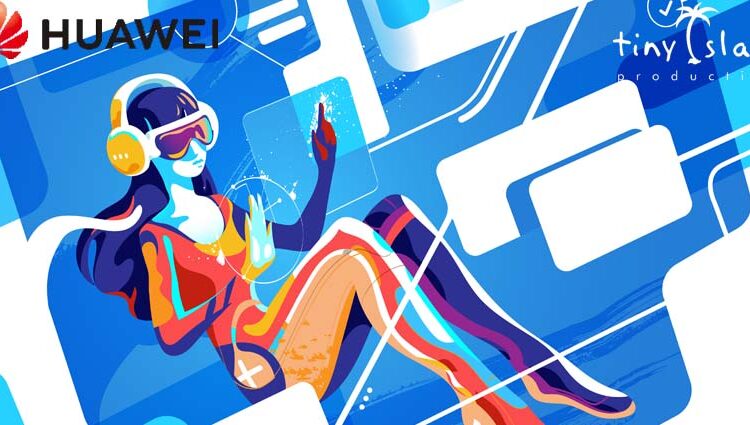Tiny Island Productions (TIP), a filming and computer animation studio in Singapore, has partnered with Huawei Technologies to build a virtual theme park using the latter’s cloud computing technologies, Cartoon Brew reported on Tuesday.
The Tiny Island Universe will provide shared spaces for users as a virtual theme park complete with shopping centres and specialised zones for exploring, socialising, and having fun, the company said.
The new virtual park is expected to open in Singapore and a Chinese metropolitan region.
Additional Chinese mainland firms have voiced interest in “potential collaborations and partnerships” on the new theme park, the report read.
It added initiative partner Beiing Silkroading Culture will also help to build the new Metaverse platform.
A joint statement from the Chinese telecoms giant and Singaporean studio said Singapore’s 5G networks and connected user base facilitated an “optimal testbed” for the VR experience, and Huawei’s AI development platform would “customise unique, personalized experiences for each and every user.”
Speaking further, David Kwok, Chief Executive for TIP, told Cartoon Brew,
“Users will eventually be creating, trading, and socializing with each other. Imagine buying a branded pair of sport shoes that you can wear both in real life, and worn by your metaverse avatar. Or even creating and selling content to other users in the metaverse so that you can buy that pair of sport shoes in the first place. The possibilities are limitless”
One of TIP’s top-rated computer graphics interface (CGI) animations is Dream Defenders, which incorporates themes on the Metaverse and has debuted on Hulu, Discovery Kids, and Amazon in the United States, according to the studio.
The news comes after TIP inked a massive $250 million USD deal with Thailand’s Shellhut Entertainment to produce ten films with Chinese firm Wings Media.
Huawei, China Enter the Metaverse Race
The news comes amid massive developments in the Chinese market from the embattled telecoms giant, which has faced an ongoing trade war with the US since the former Trump administration.
Ken Hu, Huawei Rotating Chairman, called on the industry to build use cases for enterprise 5G infrastructure and technologies for verticals such as virtual, augmented, and mixed reality (VR/AR/MR).
The industry should reach three developmental targets in the 5G industry for XR, green telecoms, and business-to-business (B2B) sales, he said in his keynote speech at the Global Mobile Broadband Forum in Dubai in October.
The global telecommunications firm also entered the XR hardware market after releasing its VR Glass headset, which offers 6 degrees-of-freedom (DoF) and enhanced visual components.
China has also voiced its interest in the global XR market, despite limitations from the ongoing trade war, by hosting the 2021 World Conference on the Virtual Reality (VR) Industry in mid-October.
According to reports, the conference took place in Nanchang and discussed the nation’s milestones in the XR industry as well as current and future use cases for implenting and developing VR technologies.

